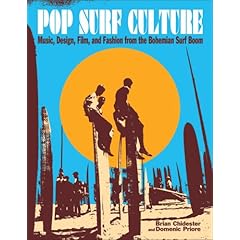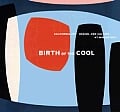Please Explain: Jazz Improvisation
Riot on Sunset Strip July/Aug 2009
Please Explain: Jazz Improvisation
Riot on Sunset Strip July/Aug 2009
Darrell Brogdon writes:
On Saturday, June 27 at 7:00pm, The Retro Cocktail Hour blasts off on KPR stations with a night of ‘outer space exotica’, featuring music from such memorable albums as Les Baxter’s Space Escapade, Fantastica by Russ Garcia, Music Out of the Moon (featuring the theremin!), Music for Heavenly Bodies (with the electro-theremin) and many more.
As a preview, check out the NEW album cover gallery, featuring images from some classic outer space records of the 1950s and ’60s.
And please join us in orbit for The Retro Cocktail Hour – Saturday, June 27 at 7:00pm on KPR stations (and available on-demand soon after at the RCH website).Les Baxter’s ‘Space Escapade’
Many more images available at our new cover gallery!
Update:
I got it today, but could only read bits here and there so far.
My favorite quote currently is Johnny Bartlett saying:
“See, a lot of surf bands (in recent years) got it so wrong. It’s not just the guitar you use, or the sound you get, or the clothes you wear… it’s the whole package.”
I encourage anyone with an interest in Surf to buy it asap. It’s just epic.

Pop Surf Culture: Music, Design, Film, and Fashion from the Bohemian Surf Boom: Brian Chidester, Domenic Priore
This is going to be a must have book – just trust me. If you’ve read previous publications by the authors (like the latest Dumb Angel Magazine for example), you know they get deep into their subjects and have great sense for entertaining writing. They take you right there, with coolest people – connecting all the dots of southern california youth culture of the sixties.
link to Pop Surf Culture on Amazon for your pre-order. I am Amazon affiliated, which just means by using this link for a purchase you get a great book and support this blog at the same, for the same money. Why give it all to Amazon ;–?
These quotes are from a recent interview Evolution of Media made with Chico Hamilton, who happens to be one of my favorite drummers.
…I hear many drummers today, who have amazing chops, but who ultimately leave me cold because they never settle down long enough to get a pocket going, to keep some time. Some consider it old fashioned, but for my own listening pleasure, I enjoy hearing a band that swings. I think you will enjoy it too.
I’m told that people still dance to my music in nightclubs. There’s no greater compliment than that!
…But I can tell you one thing that I do know, which is that if this ‘so called’ industry becomes more about the format, than it is about the music, then it’s a dead end industry.
I knew about this big back-catalogue re-issue being planned before, but I somehow never could view the web-page until now.
Arthur Lyman died a couple of years ago, and it was a great loss to the people into Exotica and Tiki as he was still performing. He used to play with Martin Denny before he ventured out with his own group. Both artists released similar styled albums, but Lyman kept more Hawai’i in his music as the sixties went on, being hawaiian might be a reason. He had some of the deepest, most atmospheric and soulful Exotica recordings, combining authentic ethnic instrumentation with modern jazz. Another interesting point of note are humorous tunes he often selected to appear towards the end of his LPs. He may not have had a Sandy Warner on the covers, but many are very beautiful, classic Exotica designs. Taboo 2 had an authentic shrunken head on the front, until it was repackaged with a shot from the Pele roll of film.
Kevin Crossman writes on the Exotica list:
Collectors has released 18 Lyman albums in their entirety as 9 two-fer CDs.
…
Don’t be fooled by lame, generic cover art. each release has the cover of both LPs printed in full color. All you have to do is take the front booklet out and fold it backwards to show the cool orig Lp cover art! The CD also contains a reprint of one of the Lp back covers
…
Look for the double titles separated by a slash. Steer clear of the Greatest Hits package – it is not bad but I’m sure you would rather have the full experience of a Lyman lp in its original format
…
go to Collectors’ Choice Music
I checked this book out a while back and I confirm it’s a must have. Here’s a quote from the New York Times.

The cool was born in New York. It was in Manhattan that Miles Davis and the nine-piece group he convened in the late 1940s forged a tightly understated alternative to the hot expressionism of bebop and recorded the hugely influential tracks later collected in the album “Birth of the Cool.” But it was in California in the 1950s that cool jazz and cool art in general took root and flourished.
The story is well told in “Birth of the Cool: California Art, Design and Culture at Midcentury,” an exhibition here at the Addison Gallery of American Art. Organized by Elizabeth Armstrong, chief curator at the Orange County Museum of Art in Newport Beach, Calif., where it originated, the show examines cool style of the ’50s in several disciplines, including painting, furniture design, architecture, film and photography.
The multidisciplinary approach could be confusing, but it all hangs together in ways both entertaining and thought provoking. What emerges is not just a style but a spirit and an ethos that are in many ways diametrically opposite those of East Coast Abstract Expressionism. Angst-free, not monumental, anti-grandiose:
California cool is laid back yet cleanly articulated, impersonal yet intimate, strict yet hedonistic, and seriously playful. …
Birth of the Cool – California – Art – Review – New York Times
Thanks to Lou Smith.
Thanks to Lou Smith on The Exotica Mailing List
NPR – Weekend Edition Sunday, July 29, 2007
Lyle Ritz has logged over 5,000 sessions on the bass as a studio musician. But for his latest project, he wanted to figure out a way to make music on a computer. So Ritz bought an Apple laptop and a software program called GarageBand, designed for making home recordings. Six months later, he completed work on a new solo album.
‘Hardly anybody knew how to operate GarageBand, how to deal with it,’ Ritz says. ‘So I had to fool with it a couple of months.’
On No Frills, however, Ritz entered the bass line into the computer using a synthesizer. That’s because the album features Lyle Ritz’s other musical passion: the jazz ukulele.
Ritz is known as the ‘father of jazz ukulele’ for merging the genre with the four-stringed instrument, and his credits on bass include multiple pop hit singles. However, it was in college, while he was working at a Los Angeles music store, when Ritz first picked up either instrument.
‘This was in the 50s, when Arthur Godfrey, the entertainer, who liked to play the [ukulele], popularized the instrument, and so many people just had to have ukes,’ Ritz says. ‘And one day I picked it up, somebody wanted to see this beautiful, nice, big tenor uke, and I picked it up and played a few chords on it, and I was gone.’
After a stint with a U.S. Army Band during the Korean War—in which Ritz played tuba—he dropped by the music store and played a few tunes on the ukulele for his former boss. Ritz didn’t know that jazz guitarist Barney Kessel, the West Coast representative for Verve Records, was present.
‘I just about fell through the floor,’ Ritz says. ‘I couldn’t believe that I had actually played before this man.’
Kessel offered Ritz a record deal, and in 1957—50 years ago—Ritz recorded an LP called How About Uke?, the first album for jazz ukulele.
How About Uke and its follow-up 50th State Jazz generated little interest, however, and Ritz soon abandoned the ukulele for the bass. It was at that point when Ritz joined the ‘Wrecking Crew,’ the legendary group of studio musicians who played on many of the pop hits which came out of the Los Angeles area from the mid 1960s to the early 80s. Later, Ritz also played on film scores.
While Lyle Ritz’s bass was heard by millions, his jazz records for Verve were being studied by a generation of musicians in Hawaii, home of the ukulele.
Roy Sakuma is Hawaii’s foremost teacher of the instrument. ‘All of a sudden here comes Lyle with all these fantastic chord harmonies that just took music to a whole new level on the ukulele,’ Sakuma says. Sakuma tracked Ritz down in 1984, inviting him to headline his annual ukulele festival in Hawaii. Ritz ended up moving to the islands for some time.
Ritz currently lives in Portland, Ore., where he continues to experiment with music and new recording technology. He says he’s always fooling with his ukulele—after all, he did teach himself to play the instrument.
‘I’m a firm believer and exponent of the art of noodling,’ Ritz says. ‘You don’t necessarily have to have a goal in mind, you don’t have to have a specific phrase or song that you’re working on, but you just fool with it and things happen. And I call the result the fruit of the noodle.’
Lyle Ritz on iTunes
Dumb Angel Blog is delivering the goods here. The next best thing to being there at the time is knowing all the good stuff.
All the themed night-clubs. The recording studios and labels. The Doo-Wop groups, the R&B and soul acts. The garage bands who covered them. The cool jazz-acts. Early Doors, artists and mindblowing interior design. Pheww… You owe it to yourself to check out this update of the Dumb Angel Blog.